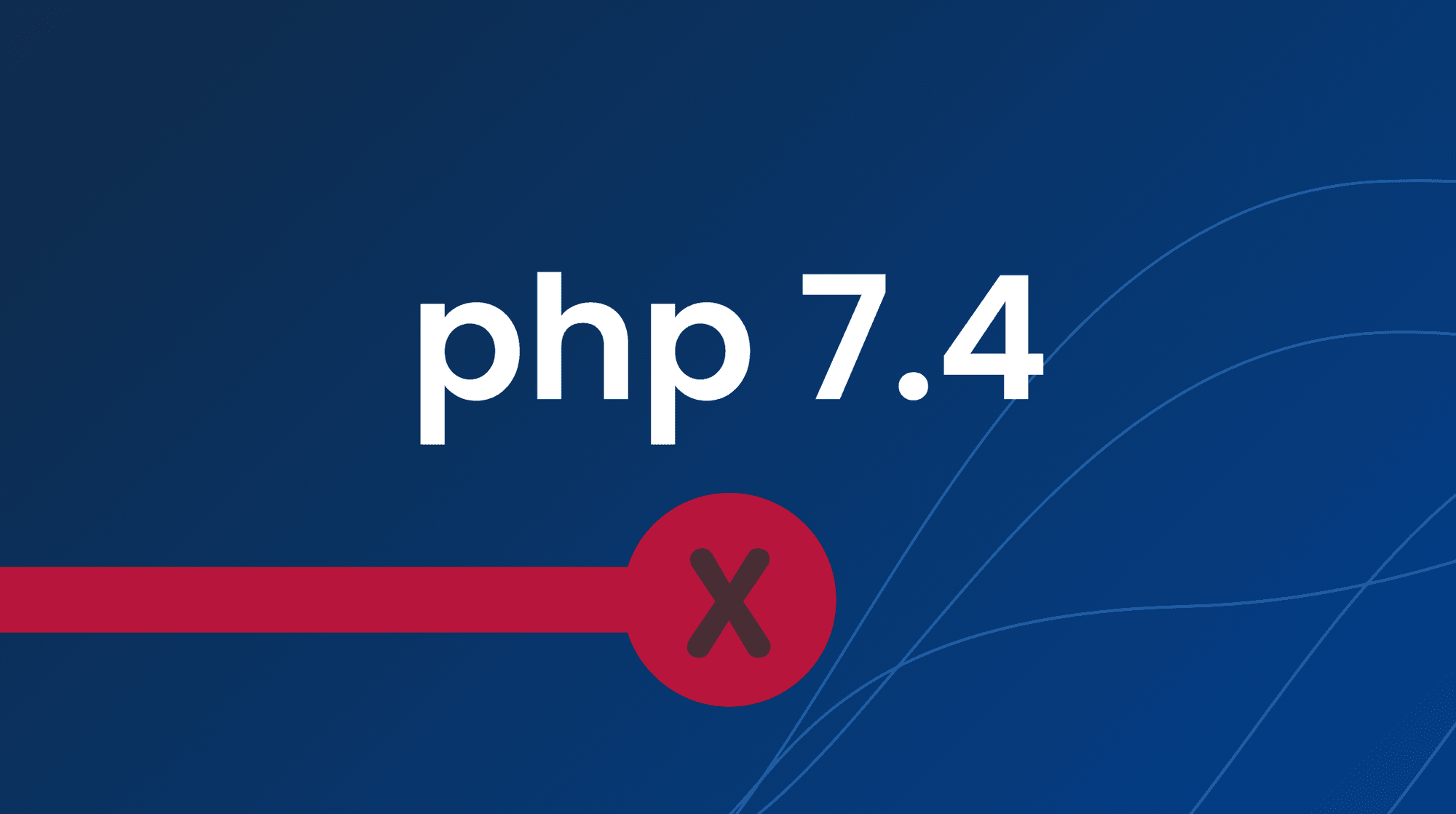在當今的數位世界中,大多數企業都在線上經營,定期網站備份的重要性怎麼強調也不為過。無論您經營的是小型電子商務商店還是大型跨國公司,您的網站都包含對您的業務成功至關重要的寶貴數據。從客戶資訊到庫存記錄,丟失這些數據可能會產生嚴重後果並導致重大的財務和聲譽損失。
🌐🔒
“及時縫一針,可以省九針。” – 英文諺語
如果發生資料外洩、系統崩潰或自然災害,擁有可靠的網站備份就像擁有保單一樣。它確保即使面臨逆境,您的企業也能快速恢復並繼續運營,不會丟失寶貴的數據或遭受長時間的停機。
那麼,網站備份到底是什麼呢?
網站備份本質上是將您網站的所有檔案和資料庫的副本保存在與主伺服器不同的位置。此備份可作為一種故障安全機制,讓您在發生任何不可預見的事件時將您的網站還原到先前的狀態。
現在,您可能想知道,為什麼應該優先為您的電子商務業務進行定期網站備份?下一部分我們將探討資料備份的興起趨勢及其意義。
資料備份的興起趨勢
在當今數位時代,資料備份的重要性怎麼強調也不為過。隨著對科技的依賴越來越大,企業和個人都意識到保護其寶貴資料的必要性。這導致資料備份頻率顯著上升。讓我們來探討一下導致這一上升趨勢的兩個關鍵因素:資料備份頻率的增加和資料外洩的成本。
增加資料備份頻率
資料備份越來越流行的一個主要原因是人們意識到資料遺失可能會帶來嚴重的後果。無論是重要的商業文件、珍貴的家庭照片或重要的個人文件,遺失資料都可能造成毀滅性的後果。因此,個人和組織越來越積極主動地透過定期備份來保護他們的資料。
根據最近的一項研究,到 2023 年,擁有電腦的美國人中將有 11% 每天備份數據,比 2022 年的 10% 增加[1]。這種上升趨勢顯示人們更加意識到定期備份資料的重要性。透過頻繁建立備份,使用者可以確保即使在發生硬體故障、意外刪除或網路攻擊時他們的檔案也是安全的。
簡單地說,資料備份就像是您的數位資產的保險單。就像您不想冒險在沒有任何保護的情況下丟失實體財產一樣,透過定期備份來保護您的數位資產也同樣重要。
資料外洩成本
資料備份趨勢上升的另一個重要驅動因素是資料外洩所帶來的驚人成本。在當今互聯互通的世界,網路攻擊和資料外洩變得越來越普遍,對個人和企業都構成了重大威脅。
2023 年資料外洩的平均成本高達 $445 萬美元[2]。這筆高昂的費用包括法醫調查、法律費用、客戶通知和聲譽損害等各種費用。此外,間接成本(例如喪失商業機會和客戶信任度下降)可能更加嚴重。
透過定期備份數據,個人和組織可以減輕資料外洩可能造成的災難性後果。即使他們的系統受到損害,擁有最新的備份也能確保他們能夠快速恢復資料並最大限度地減少違規的影響。
總之,資料備份頻率的增加可以歸因於人們越來越認識到保護寶貴資料和降低潛在資料外洩成本的重要性。隨著數位依賴性不斷增長,個人和企業必須將資料備份作為其整體資料保護策略的一部分。
「資料遺失是一件令人不安的經歷。不要等到為時已晚。定期備份您的資料並保護您的數位世界。
備份和恢復解決方案的市場成長
近年來,隨著企業意識到保護資料和確保持續營運的迫切需要,對備份和復原解決方案的需求激增。隨著對數位基礎設施的依賴日益增加以及網路威脅的增加,組織比以往任何時候都更加重視資料備份和復原。
全球雲端備份與復原市場
備份和復原解決方案成長背後的關鍵驅動因素之一是全球雲端備份和復原市場。透過利用雲端的強大功能,企業能夠安全地儲存和恢復數據,從而降低與硬體故障、自然災害或惡意攻擊相關的風險。
根據 產業報告,2022 年全球雲端備份和恢復市場價值約為 $93.8 億美元,預計到 2028 年將達到驚人的 $195.9 億美元。
- 可擴展性:雲端備份解決方案為企業提供了隨著需求成長而擴展其資料儲存和復原功能的靈活性。這種可擴展性使各種規模的組織都能受益於經濟高效的備份和復原解決方案。
- 成本效益:基於雲端的備份和復原解決方案無需昂貴的硬體投資和維護。相反,企業可以依賴基於訂閱的服務,僅為實際使用的儲存和恢復資源付費。
- 資料安全:雲端服務供應商投入大量資金採用最先進的安全措施來保護資料免遭未經授權的訪問,確保寶貴的商業資訊的安全和保密性。
資料備份與復原市場
除了雲端備份和恢復市場的成長之外,整體資料備份和復原市場也在擴大。企業產生的資料量不斷增加,再加上更嚴格的資料保護法規,促使企業投資強大的備份和復原解決方案。
根據最近的市場分析,資料備份和復原市場規模從 2022 年的 $121.8 億增加到 2023 年的 $141.5 億。
- 數據激增:隨著企業數位化和物聯網 (IoT) 革命的快速發展,組織產生和儲存的資料量呈指數級增長。資料激增需要可靠的備份和復原解決方案來確保資料的完整性和可存取性。
- 合規性要求:各行各業的組織都受到嚴格的資料保護法規的約束,例如《一般資料保護規範》(GDPR)。遵守這些法規要求制定強大的備份和復原策略,以防止資料遺失並確保在發生資料外洩或稽核時遵守法規。
- 災難復原準備:自然災害、網路攻擊和硬體故障可能會擾亂業務運作並導致大量資料遺失。有效的備份和復原解決方案可協助組織從此類事件中快速復原並最大限度地減少對其營運的影響。
總之,在全球雲端備份和復原市場以及資料備份和復原需求不斷增長的推動下,備份和復原解決方案市場正在經歷顯著成長。隨著資料量的不斷增長,快速有效地保護和恢復資料已成為全球企業的首要任務。透過投資可靠的備份和復原解決方案,組織可以保護其寶貴的資料並確保不間斷的運營,即使面臨不可預見的事件或網路安全威脅。
異地資料儲存的好處
在當今數位時代,數據處於每個組織營運的最前沿。從客戶資訊到財務記錄,企業的日常運作嚴重依賴數據。因此,確保這些資料的安全至關重要。實現此目的的一種方法是透過異地資料儲存。
🔒 保護備份免受本地災難的影響
火災、洪水甚至停電等局部災害對現場資料儲存構成重大風險。如果所有備份都儲存在與主資料中心相同的實體位置,那麼在發生災難時,它們很有可能會被破壞或損壞。異地資料儲存設施提供了一種保護您的備份免受此類本地災難影響的方法。透過將備份儲存在單獨的位置,您可以顯著降低丟失關鍵資料的風險。
✅ 擁有異地資料儲存可以作為額外的保護層,確保即使您的主資料中心受到災難的影響,您仍然可以從異地位置恢復資料。這使得企業對其災難復原能力感到安心和有信心。
💼 災難復原計劃的重要性
強大的災難復原計畫對於任何企業來說都至關重要。它概述了發生資料遺失或系統故障時應採取的步驟,以便快速有效地恢復。異地資料儲存透過為資料備份提供安全且可存取的位置,在災難復原計畫中發揮著至關重要的作用。
⚡ 快速資料復原:透過將備份儲存在異地,企業可以在災難發生時快速檢索所需資料並恢復營運。這最大限度地減少了停機時間並確保員工可以不間斷地繼續工作。
👩💻 遠端可訪問性:異地資料儲存設施通常提供遠端存取選項,允許授權人員從任何有網路連線的地方檢索資料。這種靈活性在無法現場存取資料的情況下(例如在當地發生災難期間)尤其有益。
🔒 增強安全性:異地資料儲存設施採用強大的安全措施來保護您的備份。這些包括全天候監控、存取控制和加密協定。透過將您的資料委託給專門從事資料儲存和安全的專業人員,您可以放心,您的備份是安全的。
總之,異地資料儲存在資料保護和災難復原方面為企業帶來了許多好處。透過將備份儲存在遠離潛在本地災難的單獨位置,組織可以保護其資料並確保其在危機時刻的可用性。此外,異地資料儲存提供快速資料復原、遠端可存取性和增強的安全性,使其成為任何強大的災難復原計劃的重要組成部分。
採用基於雲端的資料安全解決方案
在當今快速發展的數位環境中,資料安全已成為各種規模企業的首要關注點。尤其是小型企業,越來越多地採用基於雲端的解決方案來保護其寶貴的資訊。 93% 的小型企業已將資料或備份儲存在雲端中,顯然這項技術正在市場上獲得巨大發展[1].
🔐基於雲端的解決方案提供了廣泛的好處,包括增強的安全措施和可靠的資料備份選項。透過採用這些解決方案,企業可以降低與內部部署資料儲存相關的風險,並保護其敏感資訊免受潛在的網路威脅。讓我們深入了解基於雲端的資料安全解決方案的優勢。
基於雲端的資料安全解決方案的優勢
- 資料加密:雲端服務供應商採用強大的加密技術來保護敏感資料免遭未經授權的存取。通訊管道、儲存設備和伺服器都經過加密,確保有價值的資訊在傳輸和靜止時保持安全。
- 強大的資料備份:基於雲端的解決方案提供自動和定期的資料備份,減少因硬體故障、自然災害或人為錯誤導致資料遺失的可能性。透過在不同地理位置儲存資料的多個副本,企業可以確保其關鍵資訊的完整性和可用性。
- 進階威脅偵測:雲端服務供應商投入大量資金研發先進的安全技術來偵測和預防潛在威脅。這些解決方案採用機器學習演算法和人工智慧來分析模式並識別可疑活動,從而實現主動緩解威脅。
- 可擴充性和靈活性:基於雲端的解決方案為企業提供了根據需求擴展其資料儲存需求的靈活性。隨著業務的成長,他們可以輕鬆擴展儲存容量,而無需額外的硬體投資,使其成為長期資料安全的經濟高效的解決方案。
- 24/7 監控與支持:雲端服務供應商提供全天候監控和支持,確保資料的持續保護。任何潛在的安全漏洞或異常都會被及時發現並解決,從而最大限度地減少停機時間和對業務運營的潛在幹擾。
- 監理合規性:雲端服務供應商遵守嚴格的行業標準和法規,例如 HIPAA 或 GDPR,確保企業符合其合規性要求。這消除了管理和維護合規框架的負擔,使企業能夠專注於其核心營運。
總而言之,採用雲端的資料安全解決方案可以讓小型企業安心。透過利用資料加密、強備份、進階威脅偵測、可擴展性和合規性支援的優勢,企業可以保護其寶貴的資料免受潛在的安全漏洞的侵害。採用雲端運算不僅可以增強敏感資訊的安全性,還可以提供靈活性、成本節省和安心。
🌦️因此,如果您是一家希望加強資料安全措施的小型企業,請考慮探索基於雲端的解決方案所提供的眾多好處。
[1]: 來源
需要可靠的備份解決方案
在當今數位時代,資料是企業和個人的命脈,對可靠備份解決方案的需求比以往任何時候都更加迫切。無論您是小型企業主、IT 專業人士還是狂熱的智慧型手機用戶,寶貴資料的遺失都可能造成毀滅性的後果。這就是為什麼擁有強大的備份解決方案對於保護您的資訊並確保安心至關重要。
以下是必須擁有可靠備份解決方案的幾個原因:
防止資料遺失
想像一下,有一天醒來發現你的電腦崩潰了,或是你的智慧型手機被偷了。您所有的重要文件、照片和文件瞬間消失了。如果沒有可靠的備份解決方案,恢復這些資料將是一項具有挑戰性且耗時的任務,甚至是不可能的。透過定期備份數據,您可以降低丟失所有數據的風險,並在災難發生時擁有一個可以依靠的安全網。
防範網路威脅
隨著網路威脅變得越來越複雜,保護資料免受惡意攻擊的重要性怎麼強調也不為過。勒索軟體攻擊、惡意軟體感染和資料外洩可能會破壞您的系統並危及敏感資訊。透過實施包含強大安全功能的可靠備份解決方案,您可以在受到攻擊時快速恢復資料並最大限度地減少潛在損害。
確保業務連續性
對於企業來說,停機可能導致生產力下降、錯過最後期限以及客戶不滿意。在當今的競爭環境中,即使幾個小時的系統停機也會產生嚴重的後果。有了可靠的備份解決方案,企業就可以從意外事件中快速恢復並以最少的中斷繼續運作。這可確保關鍵業務數據始終可訪問,從而使員工能夠高效工作,客戶能夠獲得不間斷的服務。
合規性和法律要求
許多行業對資料保護和保留都有特定的合規性和法律要求。不遵守這些規定可能會導致巨額罰款、法律後果以及聲譽損害。可靠的備份解決方案可以透過在所需時間內安全地儲存和保留資料來幫助您履行這些義務。這可確保您始終遵守行業標準,讓您高枕無憂,並保護您的業務免受潛在的法律後果。
隨著技術的不斷進步,對可靠備份解決方案的需求只會增加。不要等到為時已晚——立即採取主動措施,透過實施可靠的備份解決方案來保護您的資料。請記住,對於資料遺失和資料外洩來說,預防總是比治療更好。
“數據是寶貴的,其壽命比系統本身更長。” – 提姆‧伯納斯‧李
對電子商務業務的影響
隨著數位商務的興起,電子商務業務已成為我們日常生活中不可或缺的一部分。從購買衣服、電子產品或雜貨,到預訂航班和飯店,線上購物提供的便利性和可及性是不可否認的。然而,電子商務的激增也帶來了一系列挑戰,其中之一就是資料外洩的風險。
資料外洩的平均成本
資料外洩可能為電子商務企業帶來嚴重的財務後果。根據最近的研究,這些企業資料外洩的平均成本高達 $3.86 萬美元1。這不僅包括解決違規行為和處理善後事宜的直接成本,還包括失去客戶信任、潛在的法律訴訟以及品牌聲譽的損害。
每日備份的重要性
對於電子商務平台來說,客戶資料和交易資訊不斷被處理和存儲,因此優先考慮資料完整性和安全性至關重要。這就是每日備份發揮作用的地方。
每日備份對於電子商務企業至關重要,原因如下:
- 防止資料遺失: 透過定期備份,企業可以確保在發生資料外洩時,他們擁有其網站資料的最新副本。這可以實現更快的恢復並降低永久性資料遺失的風險。
- 減少停機時間: 如果發生安全事件或技術故障,最近的備份可以幫助網站快速恢復到先前的狀態。這最大限度地減少了對客戶的影響,防止了收入損失,並保持了無縫的購物體驗。
- 符合業界標準: 包括電子商務在內的許多行業都制定了嚴格的資料保護法規。定期備份顯示了對資料完整性的承諾,遵守這些標準的企業更有能力維護客戶信任並避免法律處罰。
透過投資強大的備份解決方案並實施每日備份策略,電子商務企業可以保護自己免受資料外洩可能造成的災難性後果。這些備份就像一張安全網,讓人們安心,並能夠在任何不可預見的情況下迅速恢復。
若要詳細了解網站備份在維護電子商務企業資料完整性方面的作用,請查看這篇關於 網站備份的作用。它深入探討了備份的重要性,並提供了實施有效備份策略的有用技巧。
🔒💻📦 請記住,對於電子商務企業來說,每日備份就像保險單一樣,可以保護您的資料並確保順利運作! 📦💻🔒
1 資料來源: 波耐蒙研究所《2020 年資料外洩成本報告》
良好備份策略的價值
在當今數位時代,數據是任何組織的命脈。無論是客戶資訊、財務記錄或重要文件,遺失這些資料對企業來說都可能是災難性的。這就是為什麼擁有強大的備份策略至關重要。
3-2-1 備份策略
最廣泛推薦的備份策略之一是 3-2-1 方法。此策略包括創建資料的三個副本,將它們儲存在兩種不同類型的媒體上,並將一個副本保留在異地。讓我們分解一下這項策略的組成部分:
- 一式三份: 擁有三個資料副本可以提供冗餘,並確保在一個資料發生故障時您有多個備份選項。僅僅依靠主儲存和一個備份副本是不夠的;事故總是會發生,但擁有額外的保護可以挽救局面。
- 兩種不同的媒體類型: 使用不同類型的媒體防範特定風險。例如,如果您將資料儲存在硬碟上且硬碟發生故障,則在雲端儲存服務或磁帶磁碟機上保留副本可以避免遺失寶貴的資訊。混合媒體類型增加了一層額外的保護,以防止可能影響特定媒體的硬體故障或災難。
- 一份異地副本: 在異地保存一份資料副本至關重要。如果發生影響您主要位置的災難(例如火災、洪水或盜竊),此副本將作為保險。將備份儲存在異地,您可以保護資料免受物理損壞或遺失,即使在不可預見的情況下也能確保業務連續性。
備份策略的差距
儘管制定備份策略非常重要,但許多企業仍然未能做到。英國最近進行的一項研究顯示,42%的中型公司和30%的大型企業缺乏異地備份。這令人震驚的統計數據凸顯了資料保護實踐中存在明顯的差距。
如果沒有異地備份,企業就很容易受到一系列潛在危害,包括硬體故障、網路攻擊和自然災害。這些風險可能導致永久性資料遺失、延長停機時間以及嚴重的財務後果。透過忽視實施全面的備份策略,組織實際上是在用他們最寶貴的資產——數據——玩一場危險的遊戲。
需要建立故障安全機制
除了 3-2-1 備份策略之外,建立故障安全機制也至關重要,尤其是對於嚴重依賴其網站的企業而言。全面的網站備份計畫可以防止意外的資料遺失或伺服器崩潰。該計劃應包括定期備份網站文件、資料庫和配置,以確保在發生災難性事件時,您可以快速恢復網站的全部功能。
透過實施完善的備份策略和故障安全機制,企業可以保護自己免受各種風險。它不僅能讓人們安心,也能保障組織的連續性和聲譽。
請記住,任何人都可能遇到資料遺失,但如果您制定強大的備份策略,您就可以最大限度地減少影響並確保企業的生存。不要等到災難發生才採取行動—今天就開始實施全面的備份策略。
結論
總之,定期網站備份對於任何電子商務企業都至關重要。資料備份的上升趨勢和資料外洩成本的增加凸顯了保護寶貴業務資料的重要性。備份和復原解決方案市場的成長進一步強調了可靠備份策略的必要性。
異地資料儲存為防止本地災難提供了額外的保護,並在災難復原計畫中發揮至關重要的作用。透過採用基於雲端的資料安全解決方案,企業可以受益於雲端提供的可擴展性、靈活性和增強的安全性。
對於電子商務企業來說,資料外洩的影響可能是巨大的,包括財務損失和聲譽損害。每日備份對於減輕這些風險和確保您的線上業務的連續性至關重要。
良好的備份策略(例如 3-2-1 備份策略)有助於建立冗餘並確保資料的多個副本儲存在不同位置。該策略可以幫助彌補備份策略中的差距,並提供防止資料遺失的故障安全機制。
使用Managed-WP,您可以簡化備份管理流程並確保資料的安全。我們的優質託管 WordPress 雲端託管平台提供專家支援、主動監控和修補程式管理,以確保您的網站順利運作並防止資料外洩。 了解有關託管 WP 的更多信息 以及我們如何協助保護您的電子商務業務。
常見問題解答
- 什麼是網站備份?
網站備份是您的網站文件、資料庫和其他重要資料的副本,與您的即時網站分開儲存。在發生資料遺失、駭客攻擊或網站錯誤時,它可以充當安全網。
- 為什麼定期網站備份對電子商務企業至關重要?
定期網站備份對於電子商務企業至關重要,因為它們有助於保護寶貴的客戶數據,防止因網站停機而造成的銷售和收入損失,並確保在發生任何資料外洩或網站崩潰時快速恢復。
- 我應該多久備份一次我的電子商務網站?
建議至少每天備份一次您的電子商務網站,或在進行重大更改或更新時備份。此頻率可確保您的資料是最新的,並且在出現任何問題時損失最小。
- 備份電子商務網站的最佳方法是什麼?
備份電子商務網站的最佳方法包括使用可靠的 WordPress 外掛程式、自動雲端備份或透過 FTP 或 cPanel 手動備份。使用這些方法的組合可以提供額外的安全性和冗餘。
- 我應該將電子商務網站的備份檔案保留多長時間?
如果可能,建議將電子商務網站的備份檔案保留至少 30 天或更長時間。這可確保您擁有多個還原點,以防發現任何問題或需要檢索特定資料。



















